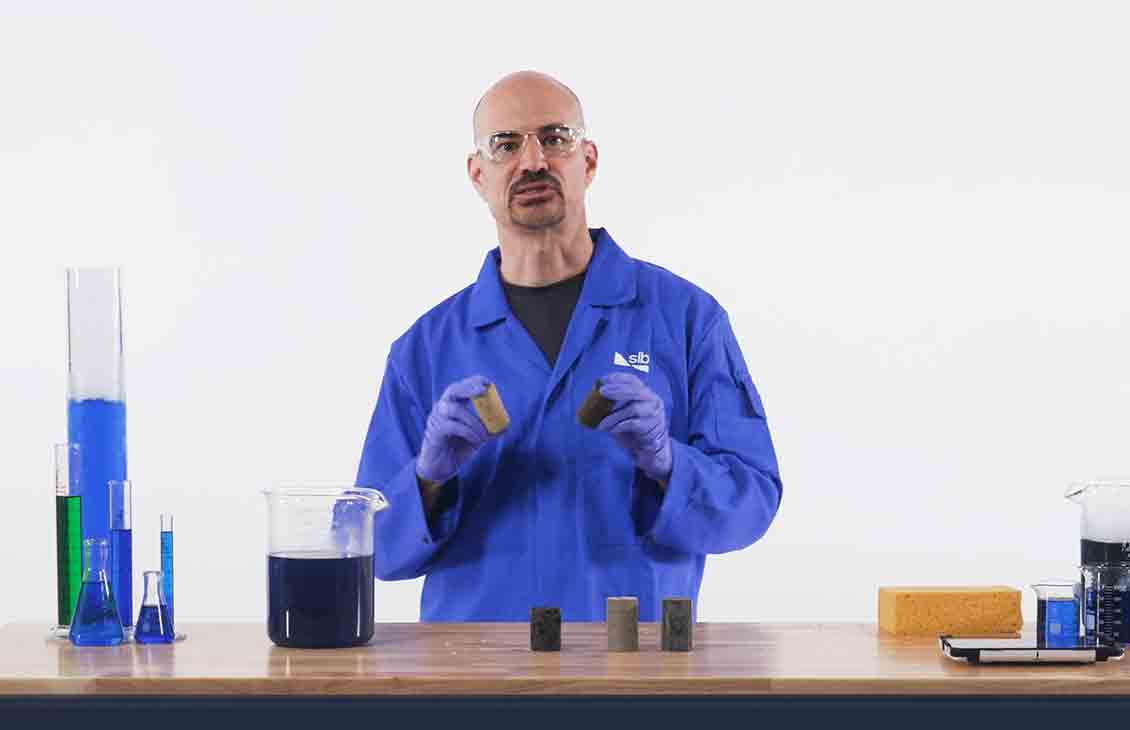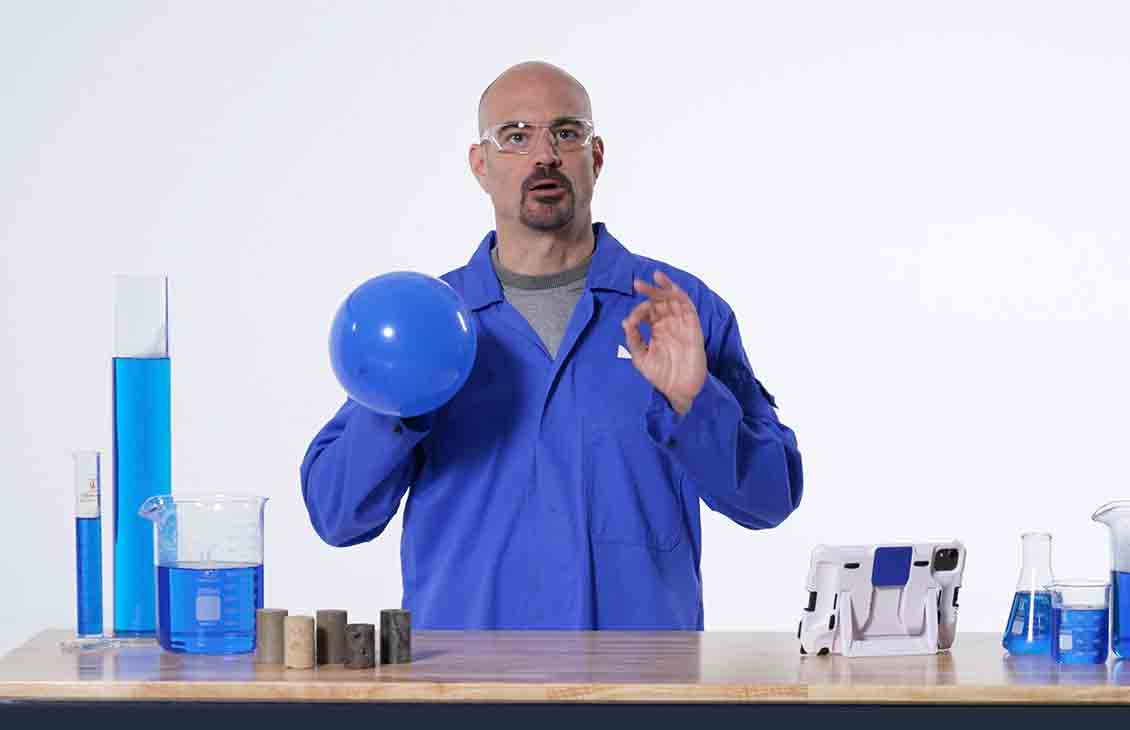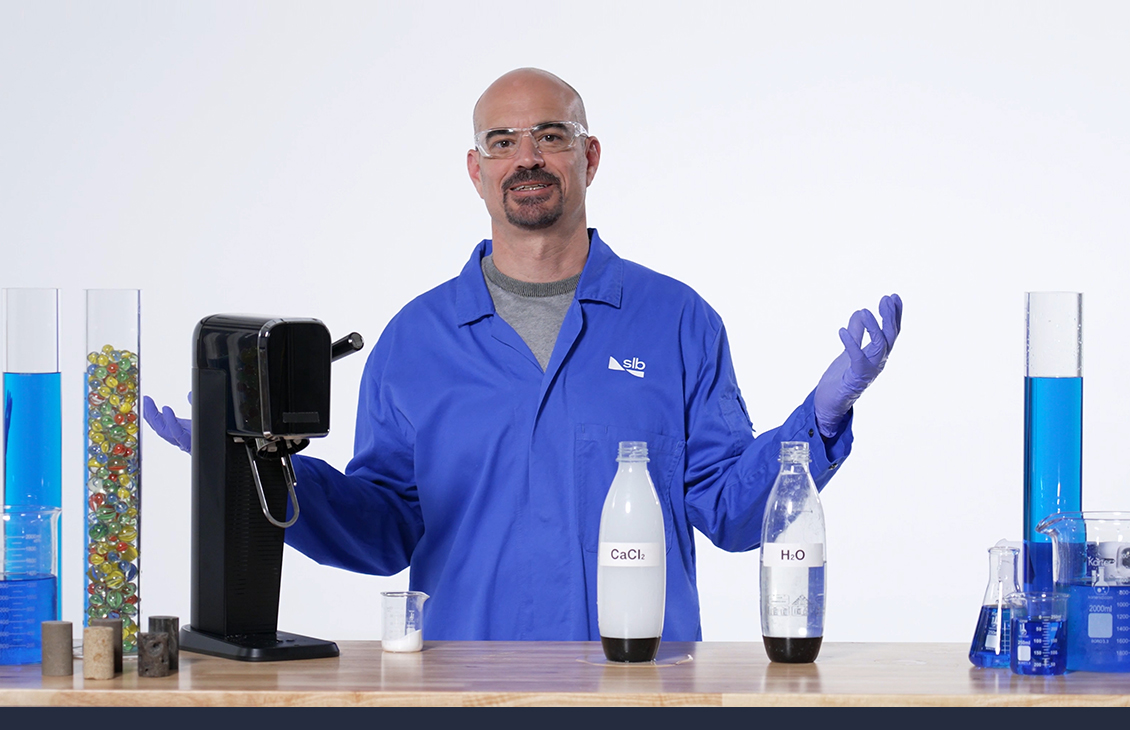Putting rocks to the test for reliable carbon storage
Published: 02/26/2024

Putting rocks to the test for reliable carbon storage
Published: 02/26/2024

In carbon capture and storage (CCS) projects, as CO2 is injected into the reservoir, pressure naturally increases over time. Ensuring that this pressure remains within safe limits is paramount to prevent the caprock from fracturing, which could compromise containment. So how do rocks perform under pressure?
In Science Rob's latest experiment, kitchen science meets geomechanics: Learn from Rob about fundamental geomechanical concepts like Young's modulus and Poisson's ratio, as he tests how different foods (representative of a rock formation) respond to stress. This and other subsurface insights plays a crucial role in evaluating carbon storage sites for appraisal. Learn more about carbon storage evaluation measurements and how they are an early, critical step in any carbon sequestration project.
Science Rob video series
-

What Makes a Good Reservoir to Inject and Store CO2?
Science Rob, Episode 1Learn from Science Rob how rock porosity and permeability help us understand and optimize carbon storage.
-

How Do You Keep CO2 Underground?
Science Rob, Episode 2Learn from Science Rob what makes a good reservoir "seal" and how this enables reliable carbon storage.
-

How Does CO2 Behave Below the Earth's Surface?
Science Rob, Episode 3Learn from Science Rob about the rock-brine-CO2 interaction and how it impacts carbon storage.
-

Delving Downhole: What the Reservoir Reveals About Carbon Storage
Science Rob, Episode 5Learn from Science Rob how sound waves travel through rock and the impact on carbon storage.
